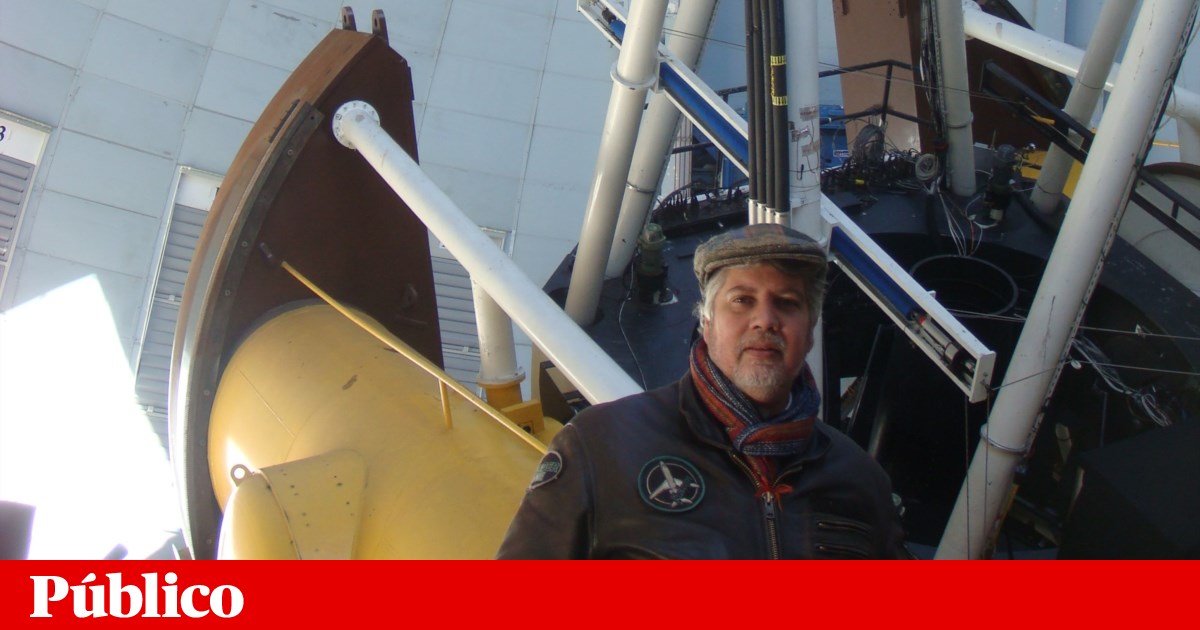Astrophysicist Pedro Machado, who gave his name to an asteroid, laments that Portugal, where he chose to major in science despite the difficulties, is “a machine for an excellent Ph.D.” “There is no well-organized scientific profession.”
“It’s hard, very difficult,” said the researcher from the Institute of Astrophysics and Space Sciences (IA) in an interview with Lusa when asked what it is like to be a scientist in Portugal.
According to Pedro Machado, 55, “there is a huge investment” in training, but then “There is no stability, a well-organized scientific career, ”although Portugal is a country in it “The doctoral making machine is excellent.”
“We produce excellent PhDs,” stressed the astrophysicist, who holds a “permanent” position as professor at the Faculty of Sciences of the University of Lisbon, which “has been a struggle“what “Until very recently“that it “For decades,” he subsisted on postdoctoral grants and fixed-term work contracts attached to scientific projects with which he competed for funding “without knowing tomorrow.”
Despite the difficulties, Pedro Machado, who names the day an asteroid discovered in 2001 that orbits the Sun between the planets Mars and Jupiter, chose to stay in Portugal, because he understands that “You can only help change by staying“.
In addition to teaching, mentoring master’s and doctoral students, and doing the science, astrophysicists impart the science they do in schools, where they give lectures.
Push spatial IMI
Pedro Machado specializes in the study of planetary atmospheres, but his work, less well known but equally published, on the detection and characterization of asteroids and their quasi-atmospheres, the exospheres, has earned him recognition from the International Astronomical Union (UAI), which has come to designate the asteroid “2001 QL160” like an asteroid “32599 Pedrox“. The decision was announced in a statement issued by IInstitute of Astrophysics and Space Sciences last Thursday.
The detective greeted her with it “Big surprise“ And it was “She almost hung up the phone“This was the lack of suspicion, when UAI talked about the news that his name said “Shine in the sky“in this case in the form of a pebble about three kilometers in diameter and taking about four and a half years to go around the sun.
He commented to himself, jokingly, that he would now pay his own IMI (Municipal Property Tax), but in reality, he could not help but thank “act of love“ friends and colleagues from all over the world “making a match” He suggested his name to the IAU, an entity that specializes in naming celestial bodies.
Now, Pedro Machado has given his name to an unseen and undiscovered asteroid. when “Scientific research is an ongoing struggle“It’s nice to know that one working day is over “With a little bright light in the sky“. An asteroid, unlike a star, does not emit light, but rather reflects light from a star, in this case the Sun.
Watch a tornado on Venus
Born on the island of São Miguel, despite claiming to be from the Azores of all the islands, the researcher had actually traveled further afield, such as Hawaii, in the United States, where he was “first to see“ With the help of a telescope, there was a hurricane on Venus, which until then was predicted only by models.
He identifies himself as an astronomer and an astrophysicist, because the two go hand in hand. Look at the sky with telescopes, discover what’s inside and study the physics behind it.
Not everything is romantic, there is everything “non-stimulant action“ that it “office“ To do this, which takes a lot of time, is like sitting in front of a computer analyzing monitoring data that had to be pre-coded to be “is reading“.
Mostly a science project “Made of dreams’ must have “Reality bricked“Pedro Machado confirms. His reality as an astrophysicist and astronomer began to emerge at the age of 11 when he bought a book about our solar system, which he still has, with money saved in his piggy bank. He was already fascinated by life, the universe. Making spaceships out of boxes.
With a PhD in astronomy and astrophysics from the University of Lisbon and the Paris Observatory, Pedro Machado continues to wonder how life could form. “I do not understand, there are too many variables, ”he asserts. In his work, he seeks to “get closer to the truth of the simplicity of the universe,” where, despite the many unknowns that remain, “there is room for everyone,” without the need for “frivolous battles.”
Childhood boxes have given way to other creations, recently for studies and projects on the atmospheres of planets outside our solar system, storms on Mars and Jupiter, and the icy moons Europa, Enceladus and Titan.
Apart from that, he intends his mission as a scientist “Contribute to making everyone better understand how fragile the Earth is.” “We need to look to the sky to better understand the planet,” he said.
For Pedro Machado, “If you learn your lesson and tune in“ With the Earth, in the sense of preserving it, perhaps the technology used in space exploration to help take care of the planet will allow the discovery of an Earth-like planet where humanity can “live someday“.
In the universe, which has always fascinated him since he was a child, the astrophysicist joins Nuno Peixinho and Pedro Lacerda, also IA astrophysicists by name “lasted” in asteroids.

“Coffee trailblazer. Social media ninja. Unapologetic web guru. Friendly music fan. Alcohol fanatic.”

